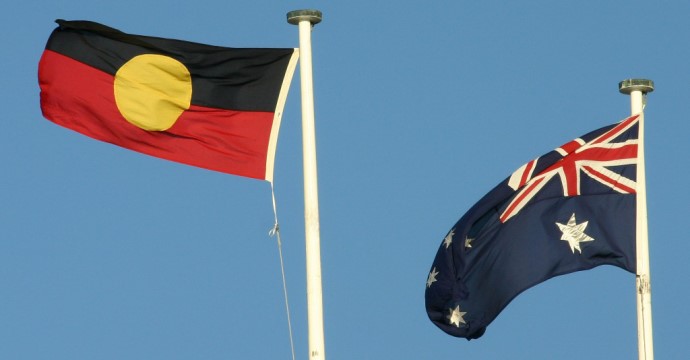A Canberra-based author and feminist has claimed that until the date of Australia Day is changed, no genuine cultural change towards reconciliation is possible in Australia.
By Zoya Patel.
For those who have somehow missed the volatile debate on the issue, a growing number of progressive Australians believe that the 26th of January is in no way cause for celebration, given it marks the beginning of over a century of violence committed against First Nations Australians in the name of colonisation.
While some Aussies enjoy a carefree day of BBQs and beer, many of us have a more sombre experience of reflecting on the destruction of Indigenous culture and communities, as well as the racist undertones that Australian patriotism has been associated with both since and before the Cronulla Riots of 2005.
Before you immediately assume this is another cookie-cutter plea for changing the date of the holiday that supposedly celebrates this great nation, let me preface this column by saying that my views on Australia/Invasion Day are more complicated than that.
As some Indigenous activists have pointed out, changing the date before a treaty is established could obscure the continuing issues of colonisation experienced by First Nations Australians, and provide an excuse for not making the structural changes needed to achieve genuine reconciliation.
In fact, the enthusiasm with which many non-Indigenous Australians have flocked to the movement to change the date alludes to the broader issue: symbolic changes like this are much easier to fight for than the long term, structural changes that need to occur to our health, education, housing, welfare and political systems to genuinely recognise Indigenous sovereignty and address the abhorrent inequality that exists in Australia today.
While hundreds of thousands of us tweet about changing the date once a year, most go back to ignoring the issue within a week while First Nations activists continue the arduous process of ongoing campaigning year-round.
But regardless of whether changing the date is the most meaningful action for reconciliation or not, the polarising nature of the debate on this issue means that there is no way forward without changing the date.
The decision by both sides of government over the years to dig their heels in and refuse to acknowledge or respond to the alignment of Australia Day with the violence of colonisation means that the symbolic weight of the issue has grown.
It is now a line in the sand that has been permanently drawn, and until the date is changed, no genuine cultural change towards reconciliation is possible.
The issue has become the most visible example of Australia’s inability to reckon with our violent history, and until it is resolved, we are in a constant state of stalemate. Not only do we continue to cause harm to First Nations Australians each January by essentially restating a lack of political will to address the gaping inequality and prejudice they face, but we also are unable to genuinely celebrate this country and any shared sense of national pride.
Both sides lose. Nobody wins. And patriotism continues to be a dirty word that is mired in racist ideology.
As a migrant who arrived in Australia in 1992, I have memories of a time when seeing an Australian flag draped over someone’s shoulders, or the sight of a southern cross tattoo didn’t make me flinch. But that was long before both symbols became inextricably linked to racist rhetoric that claimed Australia for white people only, and firmly put both people of colour, and more importantly, First Nations Australians, outside of the celebrated Aussie identity.
I do love Australia. I love being Australian. I want to celebrate our country as a fair, progressive, inclusive society, but whilst we continue to turn a blind eye to how our national identity is created to the exclusion of large swathes of our community, this simply isn’t possible.
There is much work to be done to address reconciliation in Australia. Changing the date is only one small part of this process, but it is a necessary one, that could mark the beginning of a new era of understanding, compassion and equality for all Australians.
About Zoya Patel

Zoya Patel is the award-winning author of No Country Woman, a memoir of race, religion and feminism. She is also the founder of feminist literary organisation, Feminartsy. Zoya has won numerous awards for her writing and editing, and has been published widely, including in the Australian Financial Review, ABC, SBS, Junkee, Overland, Meanjin, and Sydney Morning Herald. She was a 2019 judge for the Stella Prize, and was the inaugural ACT Stella Schools Ambassador.
This article first appeared in The Riot Act.





